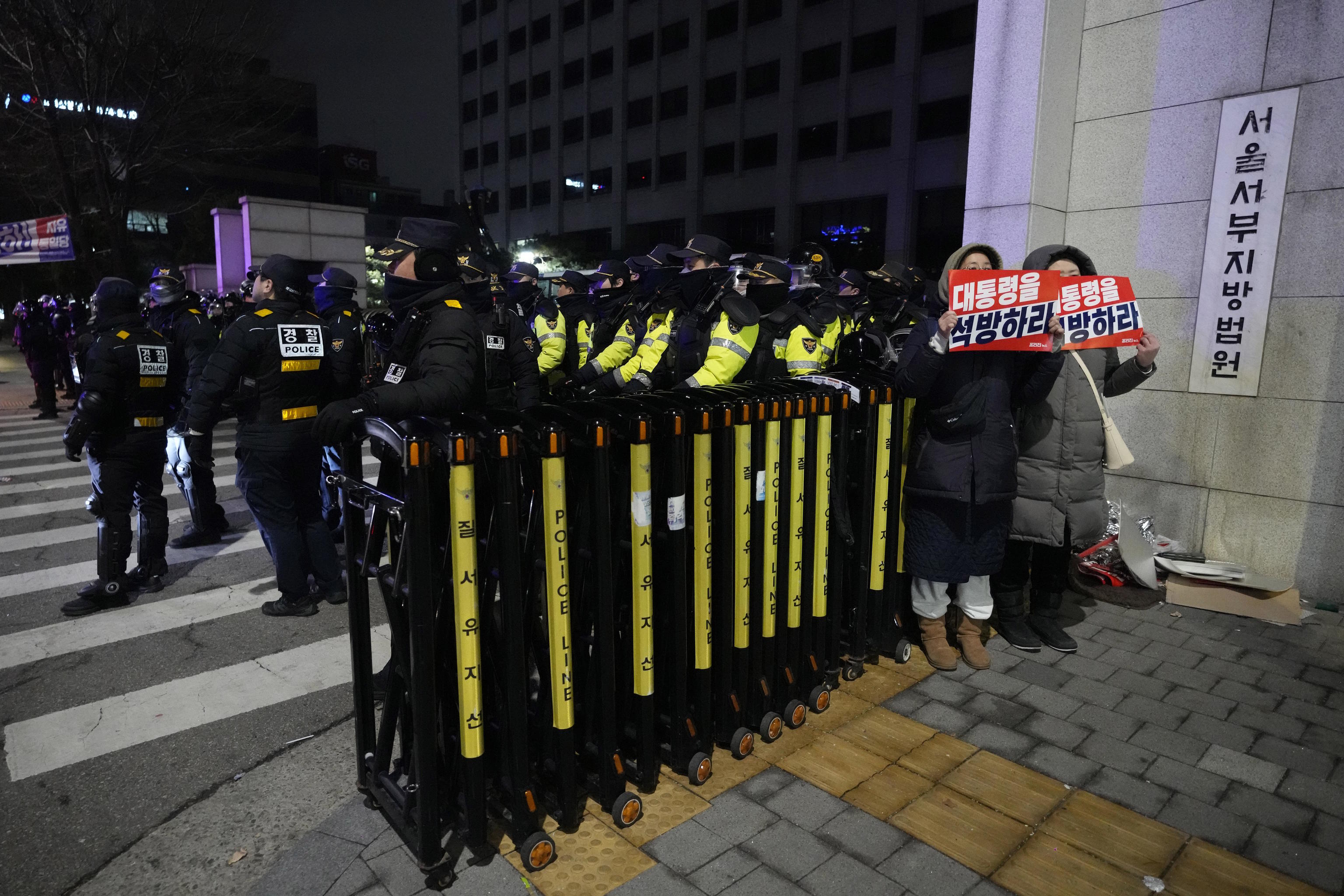Through the cells of the Seoul Detention Center, built in 1987 in Uiwang, on the outskirts of the capital, three former presidents who were later convicted of corruption have already passed. Until now, never before had a president still in office been part of the illustrious list of inmates at this center.
Yoon Suk Yeol (64 years old) will go down in history in South Korea as the leader who turned this Asian democracy into a military regime during the brief six hours that the ephemeral martial law lasted, approved on December 3. A failed coup that has led Yoon to the cells of Uiwang, where on Sunday he was placed in isolation after a court issued a formal arrest warrant against the conservative politician, who has been detained since last Wednesday.
Far from the comforts of the presidential residence, where he had barricaded himself in recent weeks resisting his arrest, Yoon has to wear a green uniform with his inmate number on his chest and sleep in a 10-square-meter cell. South Korean media have reported that the cell has a wardrobe, sink, toilet, television, and desk. Without a bed, Yoon will have to sleep on the floor with blankets.
Detainees can only use a shared shower stall once a week.
Although authorities have indicated that, in such an exceptional case as this, Yoon will be allowed to shower alone when there are no other inmates in the bathrooms, and he can also go out to the yard, when it is empty, once a day. Officials have stated that these measures are not a "privilege" but are necessary for the detainee's security.
If he wanted to, Yoon could leave the detention center almost daily and go to the headquarters of the Anti-Corruption and Civil Rights Commission (CIO), the anti-corruption agency leading the investigation against the leader accused of abuse of authority and insurrection, a crime punishable by death. But for now, the politician refuses to cooperate.
This Monday, his lawyers announced that Yoon will continue to not appear before investigators to be interrogated. The president ousted in December after an impeachment voted by Parliament has also refused to testify in the trial he faces in the Constitutional Court, which must decide whether to validate the dismissal approved by lawmakers or reinstate the leader in office.
Through the detention center that is now in the media spotlight, former presidents Park Geun-hye, Roh Tae-woo, and Chun Doo-hwan have passed. Also Jay Y, a well-known Samsung magnate. Although most inmates at this facility are here for temporary stays awaiting their trials, there are also prisoners serving long prison sentences, such as death row convicts or rapists.
Yoon's lawyers have protested in recent hours because the conditions in which the leader is held in the detention center "are not worthy of an elected president who is still officially in office." The news coming out about the leader's situation has further enraged his violent followers, who over the weekend staged one of the most serious incidents seen in the current South Korean political crisis: they tried to storm the Western District Court in Seoul hours after the new detention order was imposed.
"Making Korea Great Again"
Using fire extinguishers and metal bars, the enraged crowd broke windows and clashed with the police. Many of the protesters calling for Yoon's reinstatement waved American flags and wore caps and shirts with the slogan "Making Korea Great Again," adopting Donald Trump's famous campaign motto.
On social media, many users compared the attack on the court by Yoon's far-right supporters to the assault on the Capitol in Washington in January 2021 when Trump's supporters refused to accept the Republican's defeat in the 2020 presidential elections.
South Korean authorities had to deploy 1,400 officers, including several riot units, to take control of the situation during the court attack. Nine police officers were injured during the clashes. 86 people were arrested.
"It has been a very serious crime that undermines the judicial system," said interim President Choi Sang-mok, who ordered a thorough investigation into what he described as a "violent and illegal incident." Authorities have placed under police protection Judge Cha Eun-kyung, who issued the order against Yoon and has been receiving death threats.
